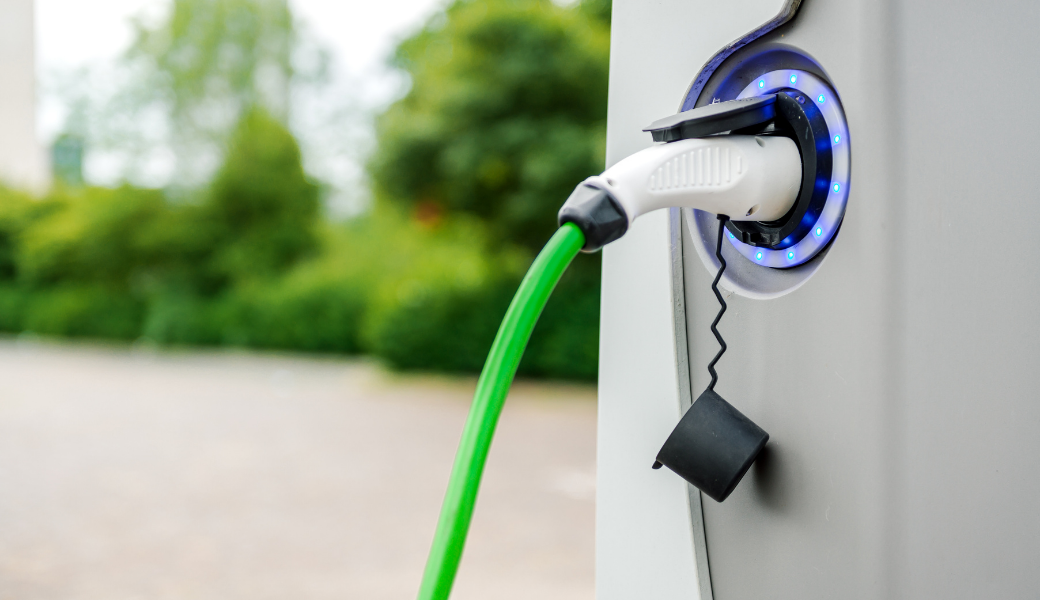The RV Industry Association Expresses Support For Increased Outdoor Access Through Improved EV Infrastructure

In recent comments to the Federal Highway Administration, the RV Industry Association expressed its adamant support for the Administration’s goal of increasing access to the outdoors for all Americans, particularly through the establishment of grant and incentive programs for state and local governments, as well as the private sector, to build a national network of EV charging stations.
The goal of ensuring greater access to outdoor spaces, along with environmental concerns and adapting to future technologies, has led to the need for a robust EV charging infrastructure, especially in rural areas, national/state parks and forests, gateway communities, and private campgrounds. The development and funding for robust EV charging infrastructure aligns with the RV Industry Association’s efforts to unify the industry by working closely with the public and private campground industry to improve the consumer's camping and RVing experiences. As the RV industry continues to surge in popularity, and the number of campground visitors continues to increase, having robust EV infrastructure remains a critical part of improving outdoor access and modernizing outdoor facilities.
The Association’s comments focused on five specific issues:
- Development of and improvement to electrical vehicle charging and hydrogen, propane, and natural gas fueling stations are critical to the outdoor recreation economy given the increase in traffic and developing technologies. According to the Bureau of Economic Analysis the outdoor recreation industry contributes $689 billion to the U.S. economy and supports 4.3 million jobs – many in rural areas. Much of America’s recreation infrastructure on federally managed lands is associated with revenue streams, including entrance and activity fees, licenses and registration fees, and excise and fuel taxes. A robust EV charging infrastructure would support the increased traffic to our parks and campgrounds to accommodate innovative new vehicles, equipment, and RVs.
- Consumer demand and innovation are spurring electrified RV products. RV manufacturers and suppliers are developing electric zero-emission motorhomes, travel trailers, and generators/power systems. Additionally, there is increasing demand for tandem charging capabilities of electric tow-vehicles and electric RV trailers at parks and campgrounds. As the country upgrades to tomorrow’s standard of electric power, we encourage the Administration to continue to engage industry on technical needs to ensure EV charging stations can accommodate new RV industry and tow-vehicle technology.
- The $5 billion state allocation can help address electrical grid issues and invest in park, forest, and rural EV infrastructure. State and local infrastructure investments can grow renewable charging recreation corridors by capitalizing on existing electric charging networks and making vital new build and utility upgrade investments in and around our nation’s public lands and campgrounds.
- Eligible entities for EV charging and refueling infrastructure grant programs and community grants must include publicly accessible parking facility projects owned or managed by a private entity. Private campgrounds and RV dealerships are well positioned to supplement the Administration’s needs for a robust and effective rural EV charging network, especially along the Alternative Fuel Corridor. If a public parking facility owned by a private entity is eligible to receive grants, private campgrounds, RV dealerships, and connected parking facilities should be eligible as well. For example, charging program funds should be available to private campgrounds for the acquisition and installation of publicly accessible EV charging infrastructure, with that private entity paying the non-Federal share of the project cost.
- The RV Industry Association supports prioritization for community grant projects in rural areas and low- and moderate-income neighborhoods and communities. Our national and state parks support hundreds of thousands of private-sector jobs annually and contribute to the health and wellbeing of Americans. In 2019, visitor spending in communities near national parks resulted in a $41.7 billion benefit to the nation’s economy and supported 340,500 jobs. These facilities and the gateway communities that surround them are worthy of a robust EV charging infrastructure that accommodates the current and future RV traveler.
View the full comments here.
For additional information on the RV Industry Association’s electric vehicle infrastructure efforts, contact RV Industry Association Director of Federal Affairs Chris Bornemann at cbornemann@rvia.org.
Please Sign in to View
Log in to view member-only content.
If you believe you are receiving this message in error contact us at memberservices@rvia.org.
